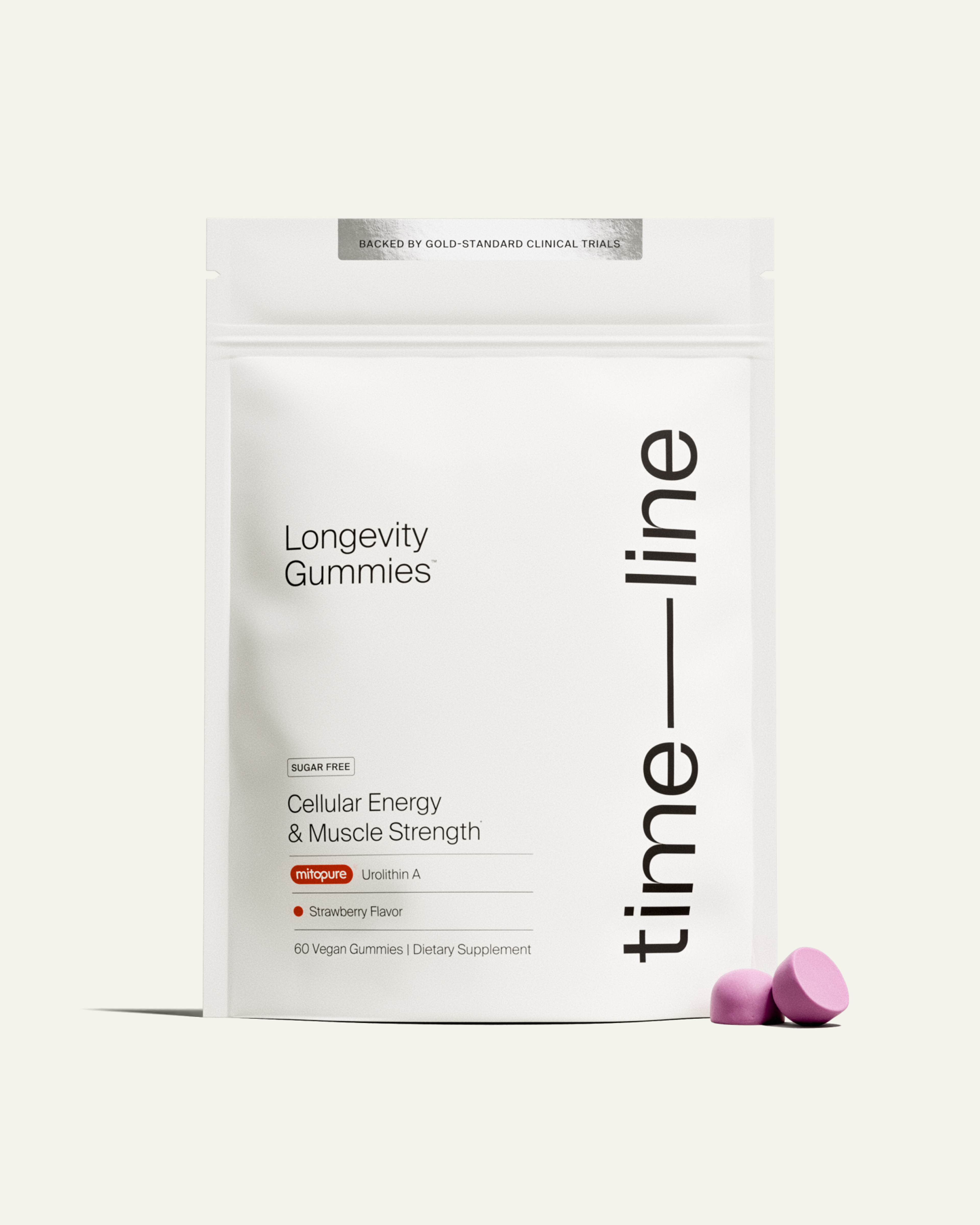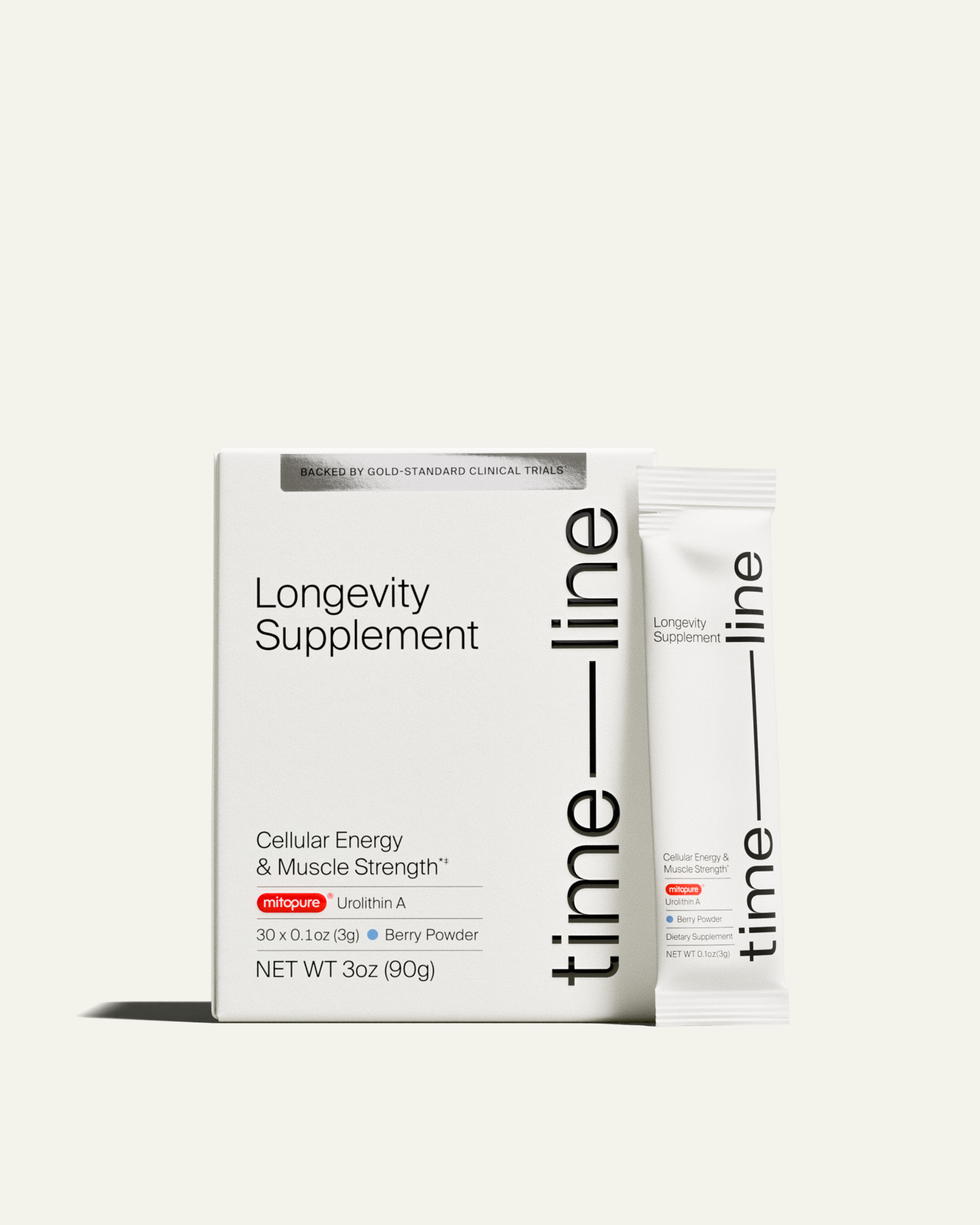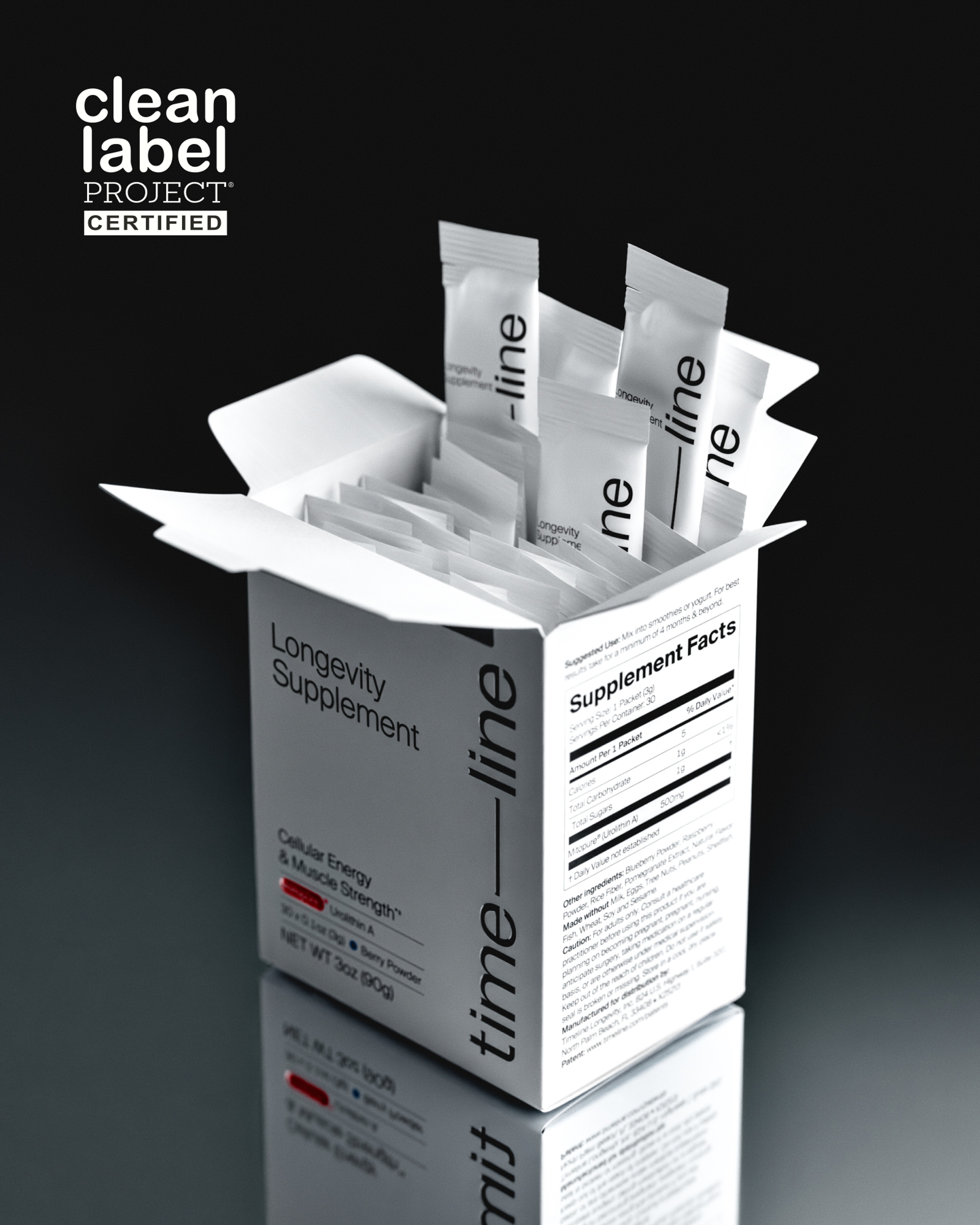8 Ways to Keep Your Brain Young
Explore effective lifestyle strategies and habits to support cognitive function and maintain a healthy brain as you age.
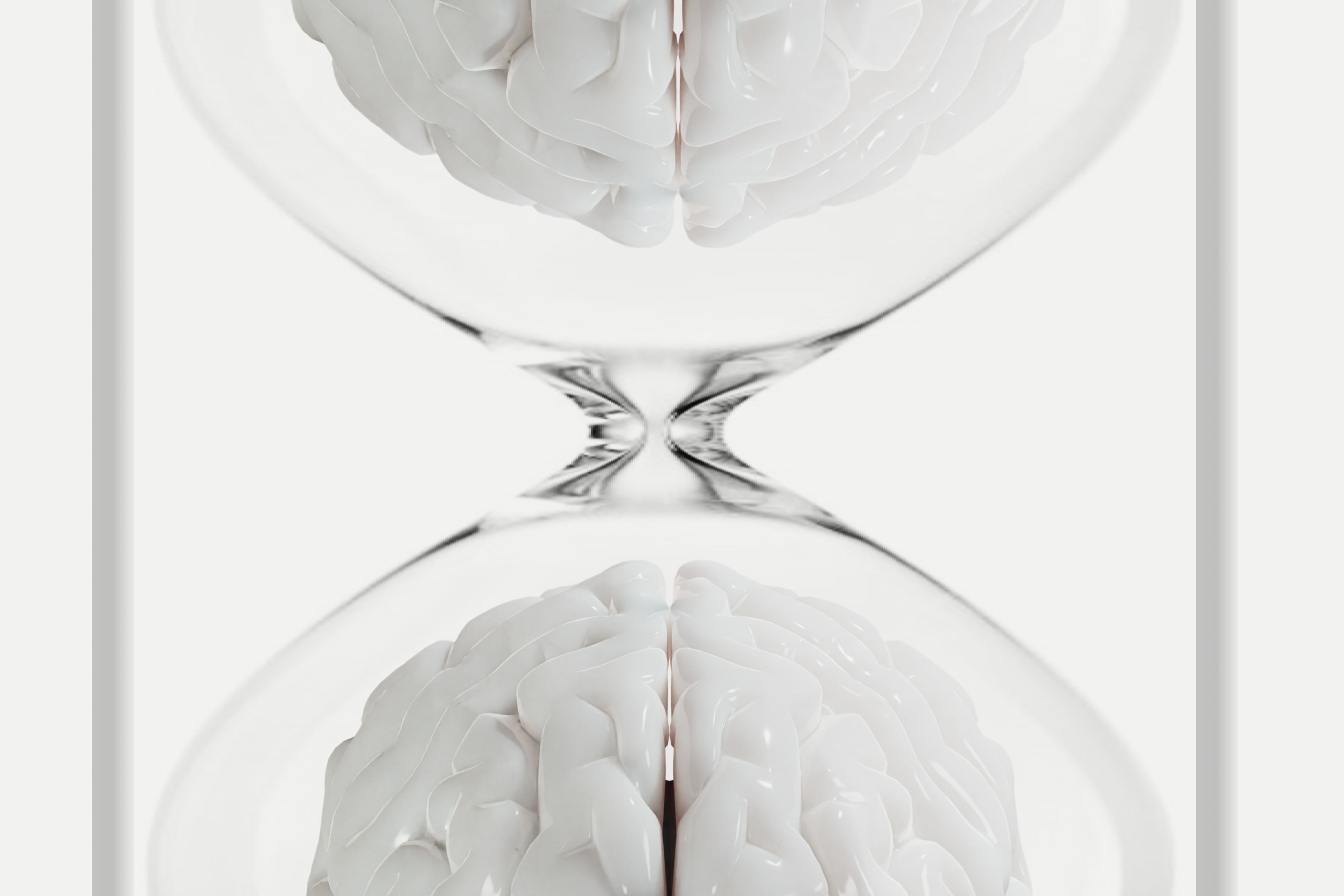
What to know
Your cognitive brain function plays a significant role in longevity and your ability to do the things you love as you get older.
Three key drivers of cognitive function as we age are genetics, lifestyle habits, and our environment.
Several lifestyle habits, such as brain-training games, a Mediterranean-style diet, regular exercise, proper sleep, and social interactions, can keep the brain young.
Adopting even a few healthier habits can help preserve brain function for years to come.
Our cognitive brain function plays a pivotal role in longevity and quality of life as we age. Brain aging, which involves natural changes in the brain's structure and function over time, can lead to cognitive decline, memory loss, and a reduction in mental sharpness. While these changes may seem inevitable, practicing simple lifestyle habits and brain-stimulating activities can energize your brain as you age.
Let’s explore brain training and mental stimulation activities that can boost brain power and empower you to lead a more vibrant and fulfilling life in your later years.
About Brain Aging
Americans are living longer than ever before, with those over the age of 65 being projected to more than double in the next 15 years. This would be an increase from 40.2 million in 2010 to 88.5 million living in this age category in 2050.[1]
While this indicates our lifespan is extending, our healthspan (i.e., the quality of our years) is just as important.
There are natural changes that happen to our brains as we age. Brain aging refers to the changes in the brain's structure, function, and cerebral capacity as we grow older. This process can include a gradual decline in cognitive abilities such as memory, attention, and problem-solving skills. [2]Over time, the brain may also experience reduced neuroplasticity, which is the ability to adapt and form new connections.[3] While these changes are a normal part of aging, they can vary greatly between individuals, influenced by genetics, lifestyle, and environmental factors. Understanding brain aging is essential for promoting brain health and maintaining cognitive function throughout life.
The end result? It can feel harder to carry out a conversation or remember recent events as you get older. While many people take this to be a normal part of aging, it doesn’t have to be so profound.
Factors that Affect Cognitive Health
There are several factors that can either help or hinder our cognitive brain function, and it comes down to three core drivers.
Genetics
While genetics are not the sole cause of the aging brain, they do play a foundational role. Studies suggest that 60 to 70 percent of the variation observed in cognitive abilities during aging can be attributed to genetic factors.[5] Therefore, certain genes can predispose individuals to more progressive cognitive decline than others, even when comparing two people with the same lifestyle habits.[4]
Lifestyle
Even if you have a genetic predisposition for early brain aging, certain lifestyle habits can slow down or accelerate the brain age process. Smoking, excess alcohol intake, overeating, inactivity, overtraining, poor sleep, and stress can all contribute to brain aging, while exercise, a healthy diet, and good sleep are just a few practices that can reduce brain aging.[6]
Environment
The environment in which you are exposed to also exerts a significant influence on cognitive function. Factors such as access to education or quality food, exposure to toxins or pollutants, and the quality of your social connections can either support or hinder cognitive function over time.
Regardless of your genetics, current lifestyle, or environment, you can take proactive steps now to support healthy brain aging.
Revitalize and Energize your Brain
Despite the changes in cognitive brain function that may come with age, there are several things we can do to support brain health. In fact, research shows that we are still capable of learning new skills, forming new memories, and expanding our vocabulary and language skills, even in later life, and this may help support longevity.[7]
If you’re not sure how, here are some practical tips to stimulate your brain to support its longevity.
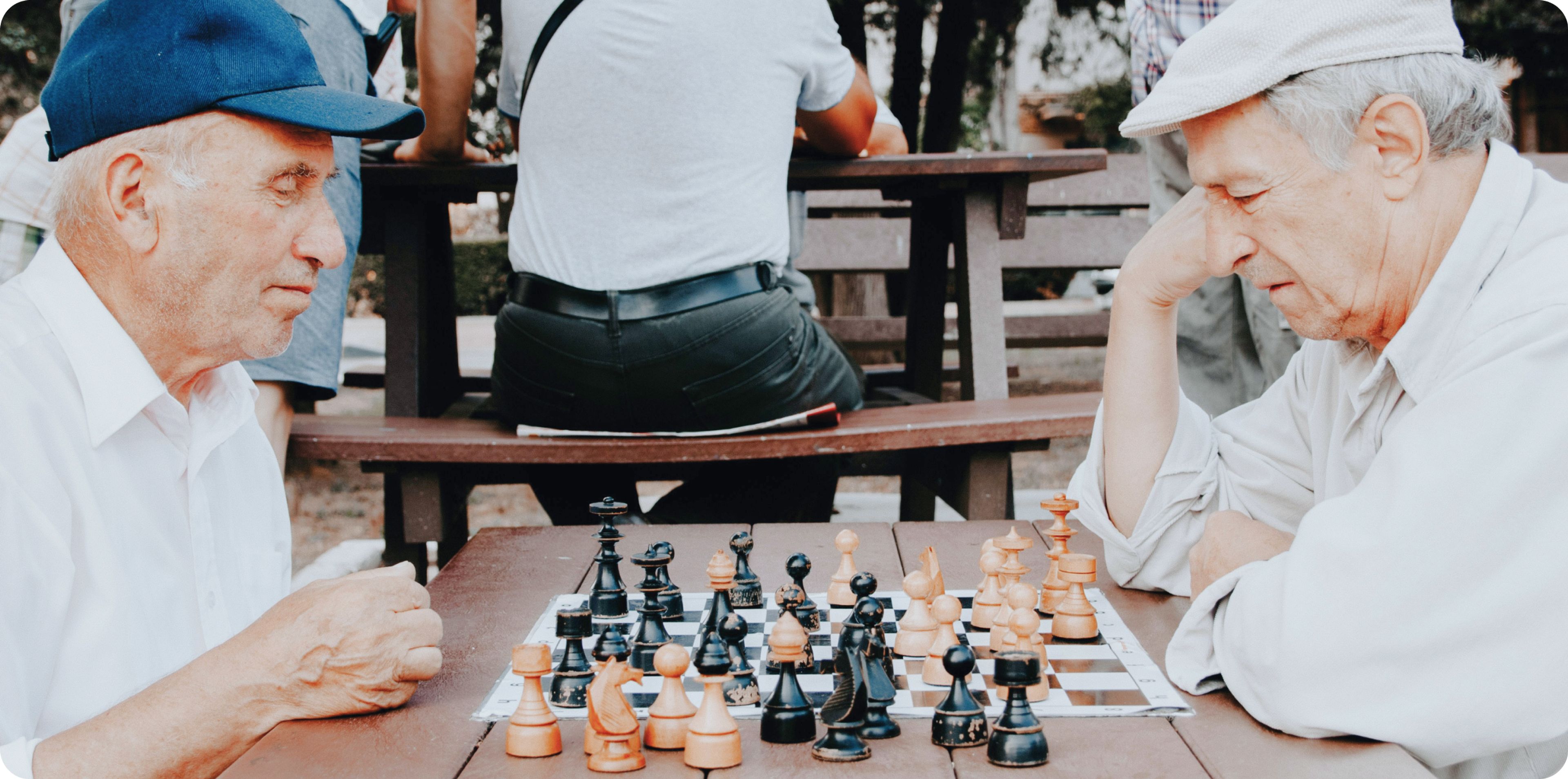
Engaging in brain puzzles and games
Activities that require focus, like crosswords, Sudoku[8], or chess, challenge your brain, keeping it active and improving problem-solving skills. Timeline’s Longevity Game is a great way to challenge your brain and learn more about longevity science in the process.
Make it a daily habit to perform at least one of these brain training exercises to stretch your mental muscles.
Learning a new language
Taking on the challenge of learning a new language not only enhances cognitive flexibility but also strengthens memory.[9] If there’s a language you’ve always wanted to learn or one you learned in the past that you’ve forgotten, this is a great opportunity to start back up again.
Learning a new language is also incredibly rewarding, allowing you to communicate more easily with those of other cultures. It can also open up the possibility of new travel destinations!
It’s never too late to pick up a new language, and the benefits are substantial for your brain.
Utilizing brain training apps and technology
If you want a little help from technology, there are several apps designed to improve cognitive skills like memory, attention, and problem-solving abilities. “Nurohacking” is a type of biohacking that uses tech to optimize peak cognitive performance.
Many of these tools adapt to your progress, offering increasingly challenging tasks to keep your brain engaged. Additionally, research has shown that regular use of brain training apps can lead to measurable improvements in cognitive function, especially when combined with other healthy lifestyle habits.[10]
Practicing meditation and mindfulness
It’s not always about making your mind work harder. It’s equally as important for cognitive function to allow space for the mind to rest, reflect, and just be. Adopting meditation and mindfulness into your daily routine has been shown to improve focus, reduce stress, and enhance mental clarity. Studies have shown these practices can improve brain cognition and brain activity in people ages 65-80.[11] It is said it may do this by changing the structure and function of the brain.
It doesn’t have to be a lot of time spent⸺just a few minutes a day can make a significant difference in your cognitive well-being. You can search for mindfulness or meditation apps on your smartphone to get started, where you can incorporate either a simple morning, afternoon, or evening practice.
Staying socially active and connected
In today's modern world, many people live in isolated societies where socialization is few and far between. Research shows associations between poor social connections and an increased risk of cognitive decline.[12]
On the contrary, regular interaction with friends, family, and community can stimulate your brain and reduce the risk of cognitive decline. Studies suggest that regions that are more social, such as those in the Blue Zones of the World, tend to live longer and enjoy enhanced cognitive function with age.[13]
Social activities challenge your brain in ways that solitary activities do not, making them essential for long-term brain health. Even if you’re an introvert, it’s important to keep in mind that socializing doesn’t need to be big events.
Just reaching out more to your loved ones or enjoying a cup of coffee with a few friends or family members more regularly is enough. This alone can have a profound impact on your mental health, which translates to improved overall brain health.
Following a brain-healthy diet
The old saying still rings true⸺you truly are what you eat. A Mediterranean-style eating pattern, in particular, has been shown to support cognitive health. This diet is rich in fruits, vegetables, whole grains, nuts, and healthy fats, which are shown to support cognitive health.
A variant of this diet called the MIND diet (Mediterranean–DASH Intervention for Neurodegenerative Delay) has also been investigated for cognitive function. The MIND diet includes all of the foods from the Mediterranean diet but also limits high-sodium processed foods that are less nutritious, may cause high blood pressure, and can be harmful to the brain.[14]
How often you eat may also play a role in brain aging. A 2020 study demonstrated that older adults who practiced intermittent fasting had better cognitive scores than those who didn’t. [15]While there may be some benefits, there are also risks to intermittent fasting as you get older, so it’s important to make an informed decision on whether this is the best practice for you.
Incorporating regular physical activity
It’s not just mental exercise that matters⸺physical exercise is just as effective in supporting brain health as you age. Exercise enhances brain function by increasing blood flow to the brain and supporting the growth of new neural connections.
A combination of endurance and strength training exercises is seen to be the most effective, as they each have their role. Studies show aerobic or endurance exercise improves blood flow in the brain and enhances executive function, a must for high-level tasks and critical decision-making.[16]
Recent studies also confirmed that strength training exercises improve brain function and cognitive function in both healthy and cognitively impaired adults.[17]
Aim for at least 30 minutes of physical activity most days of the week to keep your body and mind in peak condition.

Getting proper sleep
Proper sleep is essential for preserving brain function as you age. During a restful sleep, your brain is able to perform critical processes like memory consolidation, toxin removal, and cell repair. During deep sleep, the brain clears out waste products that accumulate throughout the day, which is vital for preventing cognitive decline.[18]
You can support quality sleep by establishing a relaxing nighttime routine that may involve quiet reading, meditation, or a warm bath. Setting boundaries for sleep and wake times and trying to stick to them will promote consistent sleep patterns.
By adopting these practical strategies regularly (not just once in a while), you’re not just preserving your cognitive function—you’re enhancing it. The effort you put in today will pay off in the form of sharper thinking, better memory, and a more engaged and fulfilling life as you age.
Final words
By adopting these habits and leveraging available tools, you can slow down cognitive decline and keep your brain vibrant and active. By gradually implementing these strategies, you’ll begin to enjoy a sharper, more youthful mind. You can start now with even one of these habits to take control of your cognitive health for a brighter, more resilient future.
Authors

Dietitian-Nutritionist, and Health Content Writer

Reviewed by
Director Science Communications
References
- ↑
Harada CN, Natelson Love MC, Triebel KL. Normal cognitive aging. Clin Geriatr Med. 2013 Nov;29(4):737-52. doi: 10.1016/j.cger.2013.07.002. PMID: 24094294; PMCID: PMC4015335.
- ↑
Harada CN, Natelson Love MC, Triebel KL. Normal cognitive aging. Clin Geriatr Med. 2013 Nov;29(4):737-52. doi: 10.1016/j.cger.2013.07.002. PMID: 24094294; PMCID: PMC4015335.
- ↑
Park DC, Bischof GN. The aging mind: neuroplasticity in response to cognitive training. Dialogues Clin Neurosci. 2013 Mar;15(1):109-19. doi: 10.31887/DCNS.2013.15.1/dpark. PMID: 23576894; PMCID: PMC3622463.
- ↑
Neuner SM, Ding S, Kaczorowski CC. Knockdown of heterochromatin protein 1 binding protein 3 recapitulates phenotypic, cellular, and molecular features of aging. Aging Cell. 2019 Feb;18(1):e12886. doi: 10.1111/acel.12886. Epub 2018 Dec 13. PMID: 30549219; PMCID: PMC6351847.
- ↑
"Gene Connection to Age-related Cognitive Decline Confirmed in Mouse Study." National Institute on Aging, 15 Feb. 2019, www.nia.nih.gov/news/gene-connection-age-related-cognitive-decline-confirmed-mouse-study (https://www.google.com/url?q=http://www.nia.nih.gov/news/gene-connection-age-related-cognitive-decline-confirmed-mouse-study&sa=D&source=docs&ust=1724434688770828&usg=AOvVaw3Tyd9lHeweg1Lu5IfdL_6x). Accessed 15 Aug. 2024.
- ↑
National Institute on Aging. Cognitive Health and Older Adults. Accessed August 14, 2024. Last updated June 11, 2024. https://www.nia.nih.gov/health/brain-health/cognitive-health-and-older-adults (https://www.nia.nih.gov/health/brain-health/cognitive-health-and-older-adults)
- ↑
Maldonado Briegas JJ, Sánchez Iglesias AI, Ballester SG, Vicente Castro F. The Well-Being of the Elderly: Memory and Aging. Front Psychol. 2020 May 26;11:778. doi: 10.3389/fpsyg.2020.00778. PMID: 32528338; PMCID: PMC7265135.
- ↑
Grabbe, J. W. (2011). Sudoku and Working Memory Performance for Older Adults. Activities, Adaptation & Aging, 35(3), 241–254. https://doi.org/10.1080/01924788.2011.596748 (https://www.google.com/url?q=https://doi.org/10.1080/01924788.2011.596748&sa=D&source=docs&ust=1724434688774275&usg=AOvVaw3UAGr0azdUwXXY08f-kEDk)
- ↑
Bubbico, G., Chiacchiaretta, P., Parenti, M., Marco, M., Panara, V., Sepede, G., Ferretti, A., & Perrucci, M. (2019). Effects of Second Language Learning on the Plastic Aging Brain: Functional Connectivity, Cognitive Decline, and Reorganization. Frontiers in Neuroscience, 13. https://doi.org/10.3389/fnins.2019.00423 (https://www.google.com/url?q=https://doi.org/10.3389/fnins.2019.00423&sa=D&source=docs&ust=1724434688776937&usg=AOvVaw0-MsBkAAMMFkkSODnWbLhW).
- ↑
Cho, J., An, D., Cho, E., Kim, D., Choi, I., Cha, J., Choi, J., Na, D., Jang, H., & Chin, J. (2023). Efficacy of smartphone application-based multi-domain cognitive training in older adults without dementia. Frontiers in Aging Neuroscience, 15. https://doi.org/10.3389/fnagi.2023.1250420 (https://www.google.com/url?q=https://doi.org/10.3389/fnagi.2023.1250420&sa=D&source=docs&ust=1724434688793579&usg=AOvVaw3IwOXgqb4wKf6r2YmFcUAu).
- ↑
Sevinc, G., Rusche, J., Wong, B., Datta, T., Kaufman, R., Gutz, S., Schneider, M., Todorova, N., Gaser, C., Thomalla, G., Rentz, D., Dickerson, B., & Lazar, S. (2021). Mindfulness Training Improves Cognition and Strengthens Intrinsic Connectivity Between the Hippocampus and Posteromedial Cortex in Healthy Older Adults. Frontiers in Aging Neuroscience, 13. https://doi.org/10.3389/fnagi.2021.702796.
- ↑
Samtani S, Mahalingam G, Lam BCP, Lipnicki DM, Lima-Costa MF, Blay SL, Castro-Costa E, Shifu X, Guerchet M, Preux PM, Gbessemehlan A, Skoog I, Najar J, Rydberg Sterner T, Scarmeas N, Kim KW, Riedel-Heller S, Röhr S, Pabst A, Shahar S, Numbers K, Ganguli M, Jacobsen E, Hughes TF, Crowe M, Ng TP, Maddock J, Marseglia A, Mélis R, Szcześniak D, Wiegelmann H, Vernooij-Dassen M, Jeon YH, Sachdev PS, Brodaty H; SHARED consortium for the Cohort Studies of Memory in an International Consortium (COSMIC). Associations between social connections and cognition: a global collaborative individual participant data meta-analysis. Lancet Healthy Longev. 2022 Nov;3(11):e740-e753. doi: 10.1016/S2666-7568(22)00199-4. Epub 2022 Oct 20. PMID: 36273484; PMCID: PMC9750173.
- ↑
Hitchcott, P., Fastame, M., & Penna, M. (2018). More to Blue Zones than long life: positive psychological characteristics. Health, Risk & Society, 20, 163 - 181. https://doi.org/10.1080/13698575.2018.1496233 (https://www.google.com/url?q=https://doi.org/10.1080/13698575.2018.1496233&sa=D&source=docs&ust=1724434688787805&usg=AOvVaw2xzWVl2VL2rJotEO28XVwO).
- ↑
Song Y, Chang Z, Cui K, Song C, Cai Z, Shi B, Dong Q, Dou K. The value of the MIND diet in the primary and secondary prevention of hypertension: A cross-sectional and longitudinal cohort study from NHANES analysis. Front Nutr. 2023 Mar 14;10:1129667. doi: 10.3389/fnut.2023.1129667. PMID: 36998902; PMCID: PMC10043250.
- ↑
Ooi, T., Meramat, A., Rajab, N., Shahar, S., Ismail, I., Azam, A., & Sharif, R. (2020). Intermittent Fasting Enhanced the Cognitive Function in Older Adults with Mild Cognitive Impairment by Inducing Biochemical and Metabolic changes: A 3-Year Progressive Study. Nutrients, 12. https://doi.org/10.3390/nu12092644 (https://www.google.com/url?q=https://doi.org/10.3390/nu12092644&sa=D&source=docs&ust=1724434688791195&usg=AOvVaw3qGkHiMKFoXCyVx7Fgarqe).
- ↑
Kleinloog JPD, Mensink RP, Ivanov D, Adam JJ, Uludağ K, Joris PJ. Aerobic Exercise Training Improves Cerebral Blood Flow and Executive Function: A Randomized, Controlled Cross-Over Trial in Sedentary Older Men. Front Aging Neurosci. 2019 Dec 4;11:333. doi: 10.3389/fnagi.2019.00333. PMID: 31866855; PMCID: PMC6904365.
- ↑
Esmaeilzadeh S, Kumpulainen S, Pesola AJ. Strength-Cognitive Training: A Systemic Review in Adults and Older Adults, and Guidelines to Promote "Strength Exergaming" Innovations. Front Psychol. 2022 May 27;13:855703. doi: 10.3389/fpsyg.2022.855703. PMID: 35712202; PMCID: PMC9197110.
- ↑
Fattinger, S., de Beukelaar, T., Ruddy, K. et al. Deep sleep maintains learning efficiency of the human brain. Nat Commun 8, 15405 (2017). https://doi.org/10.1038/ncomms15405
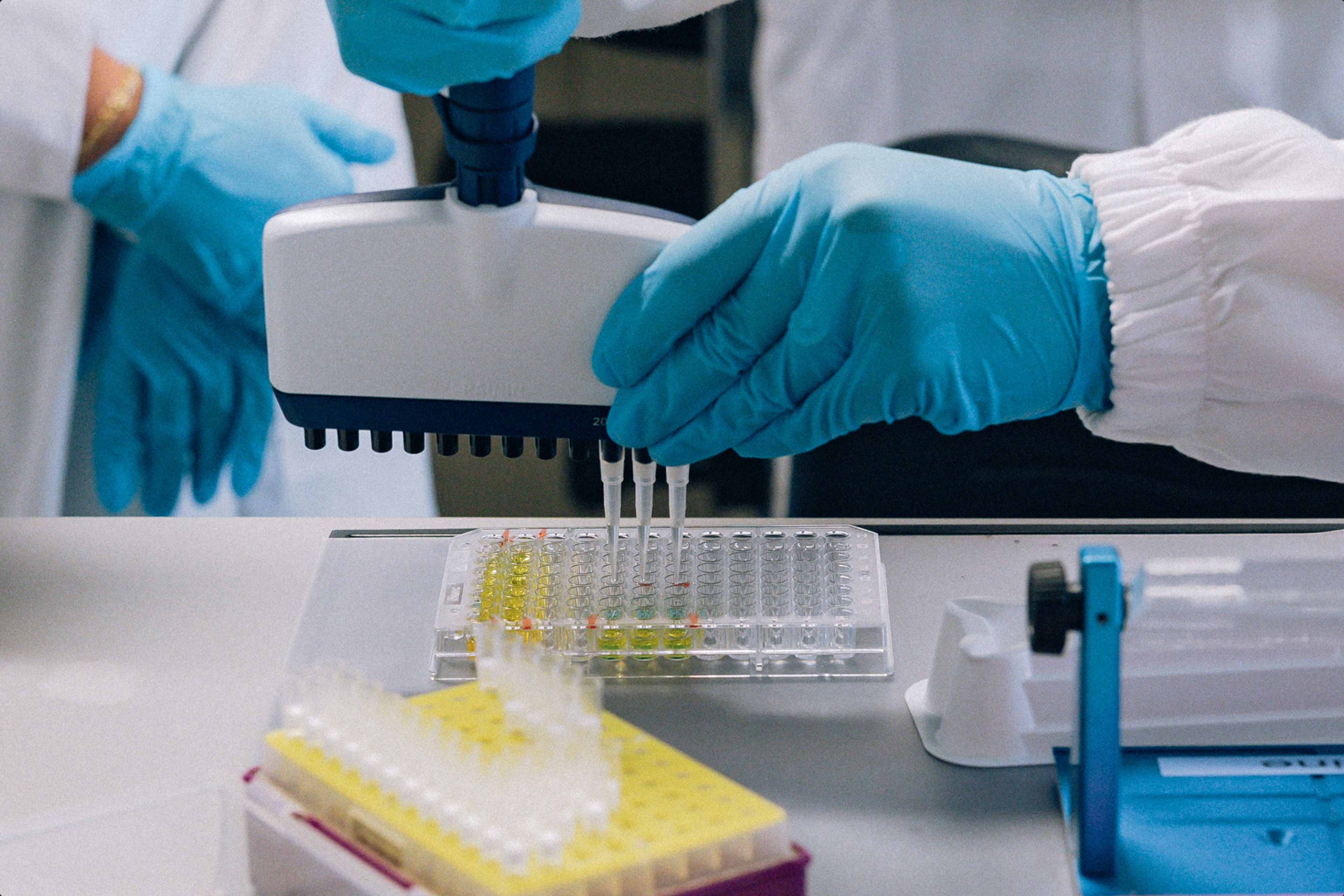
·
Nutrition·
Studies·
